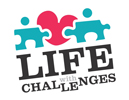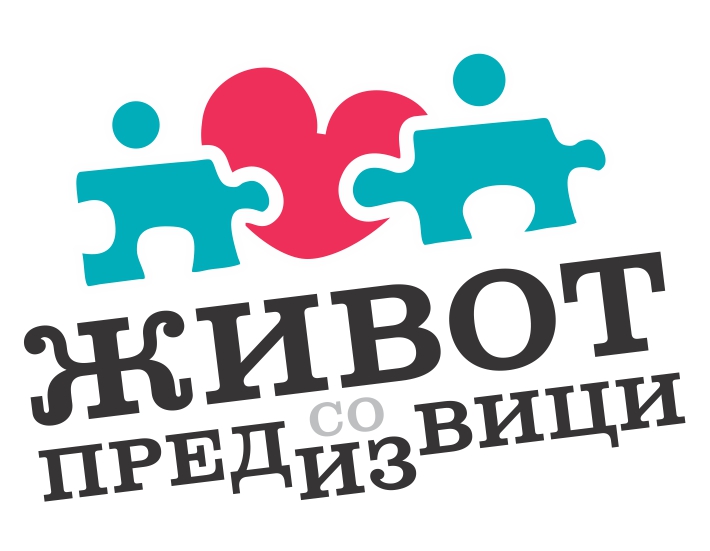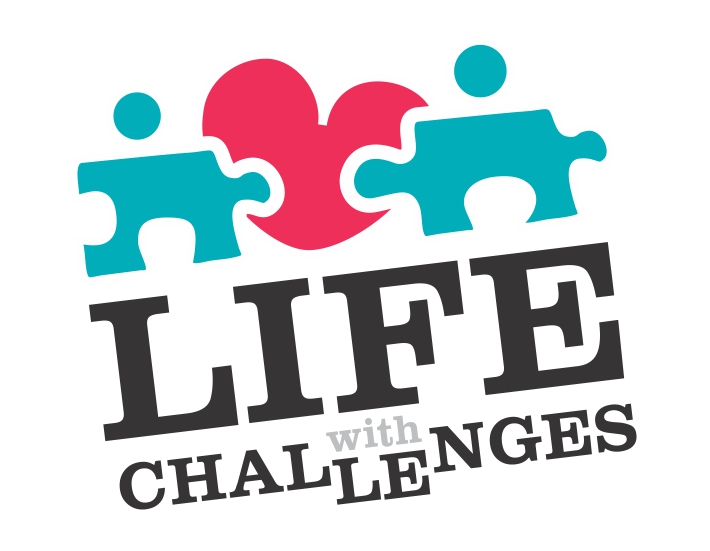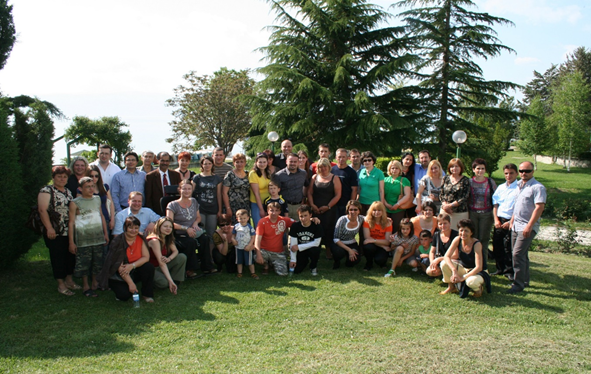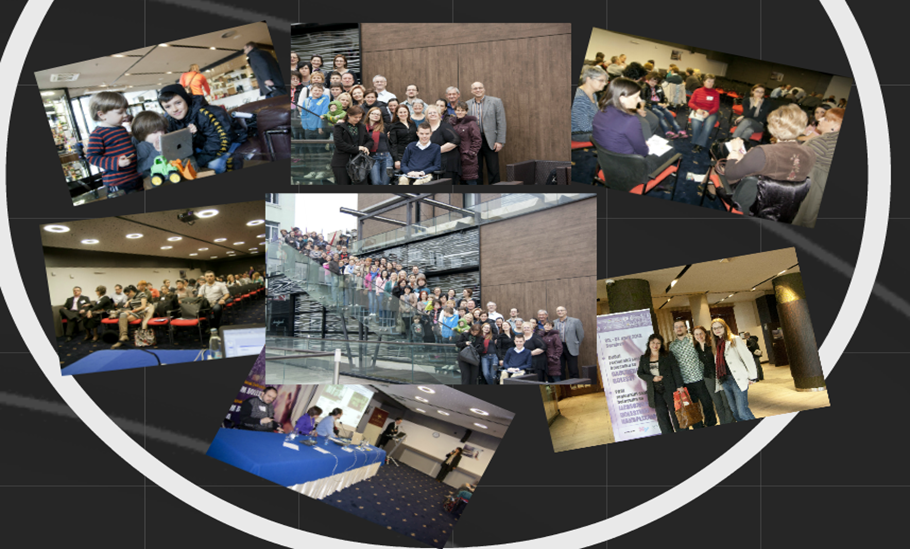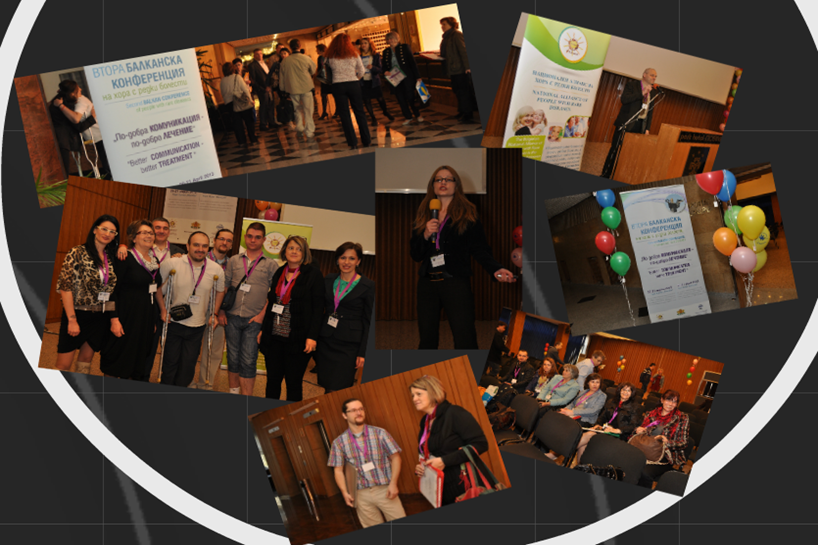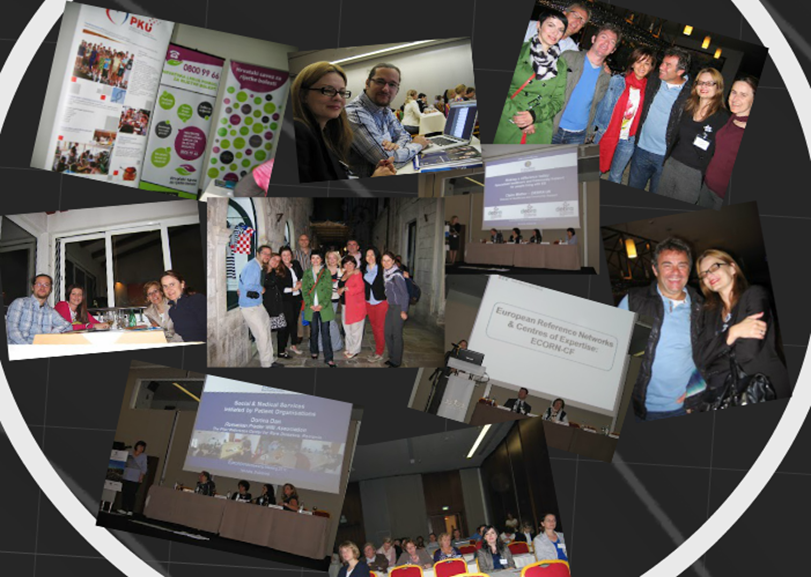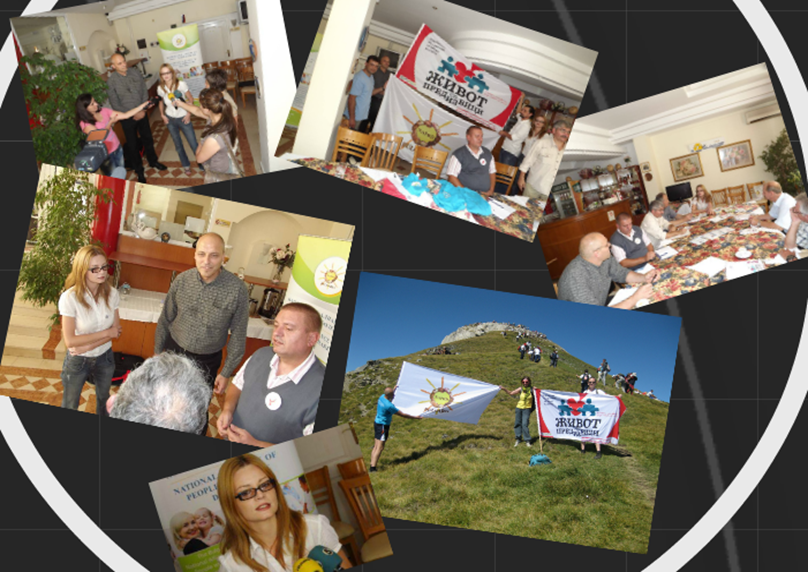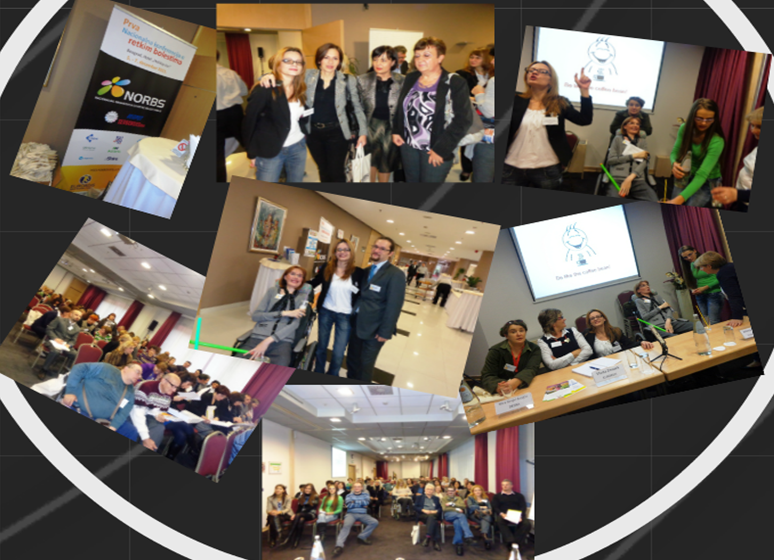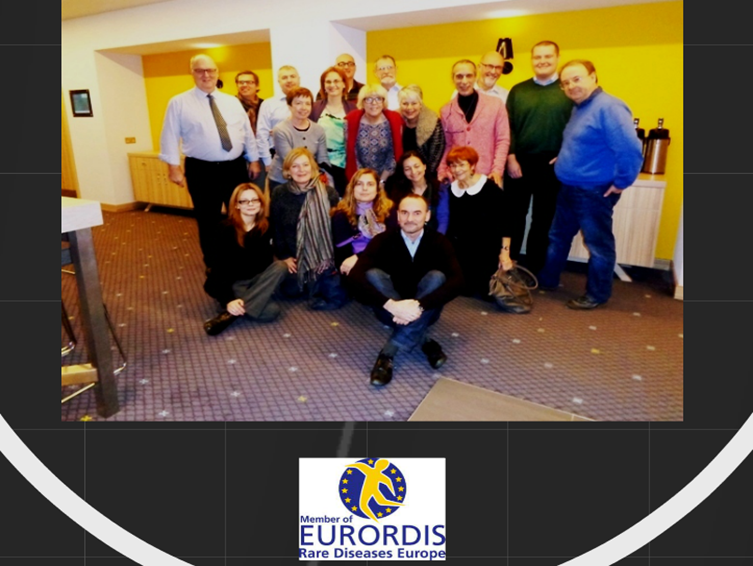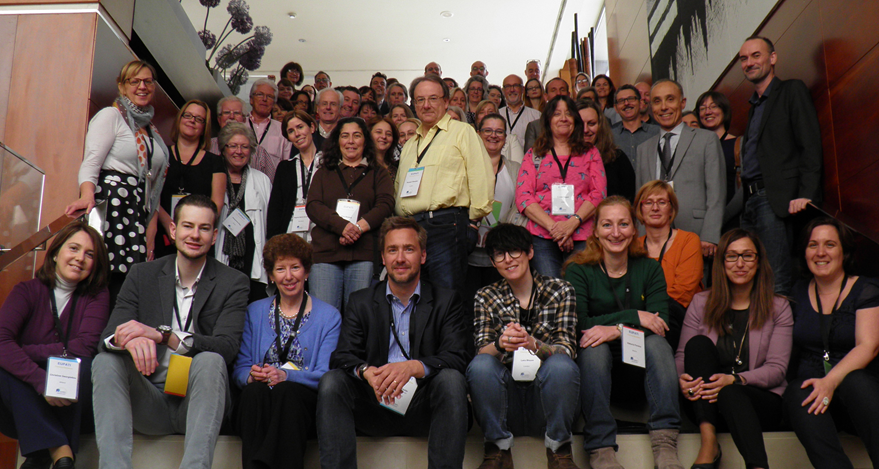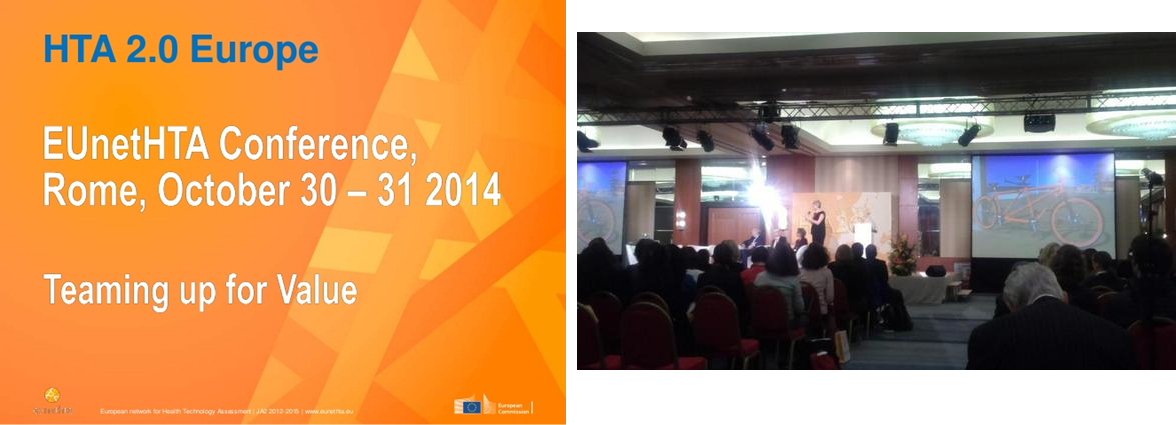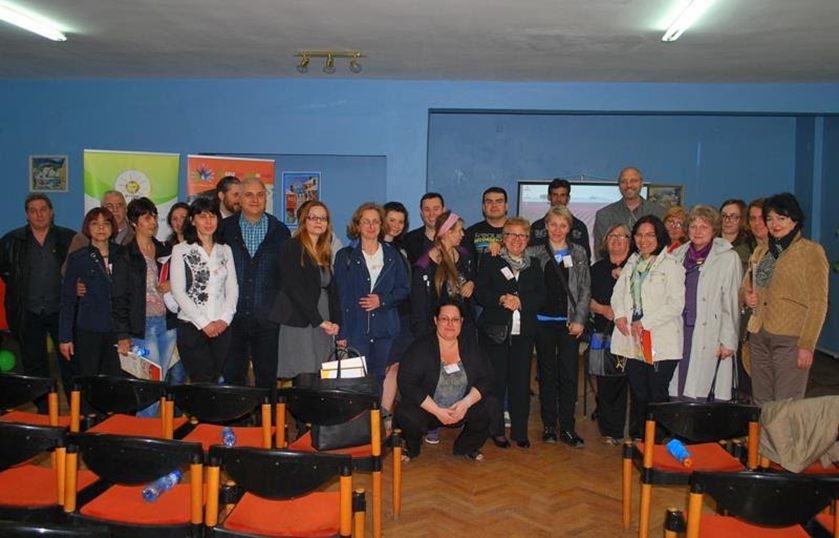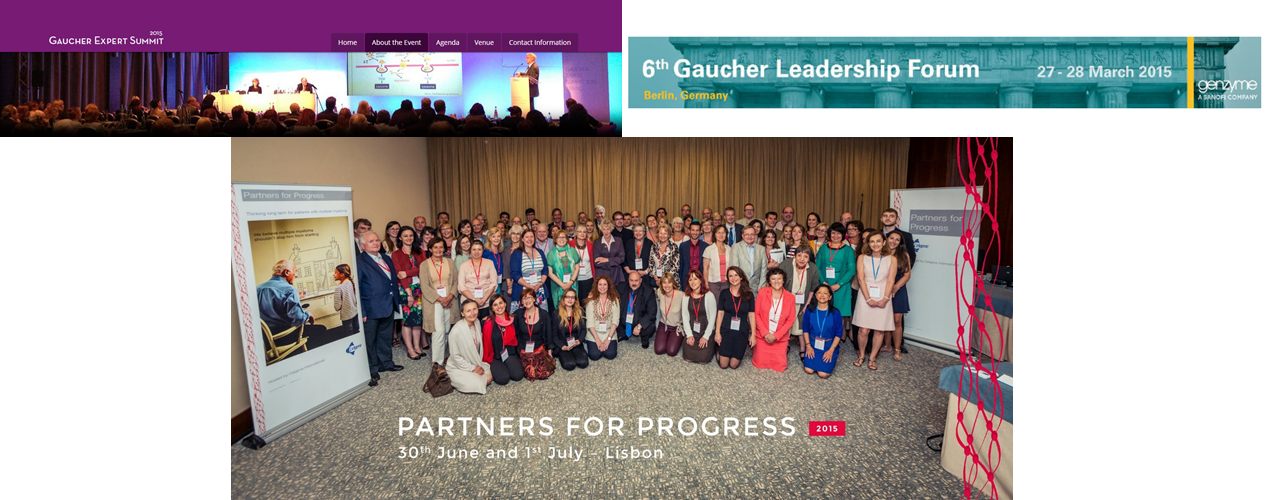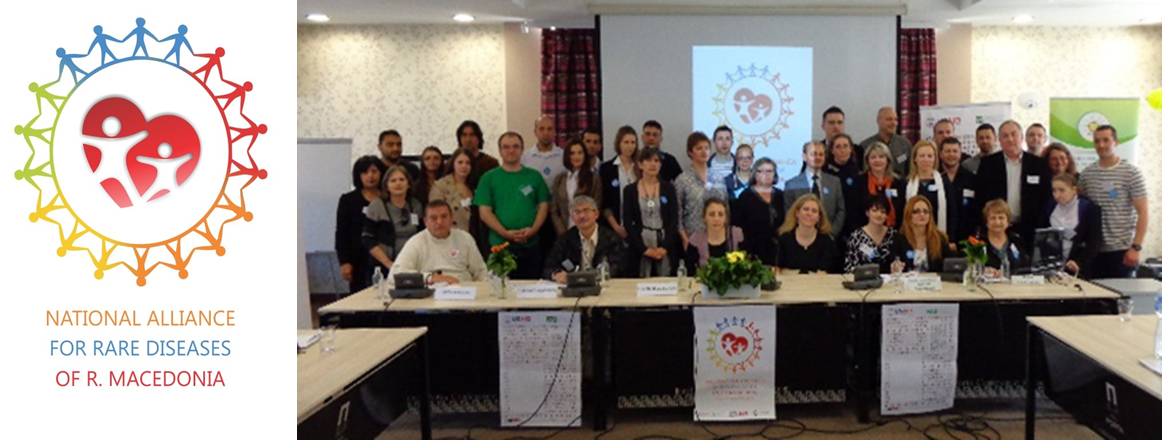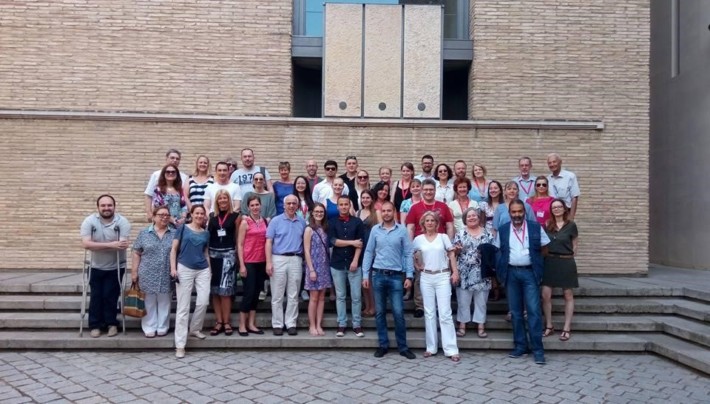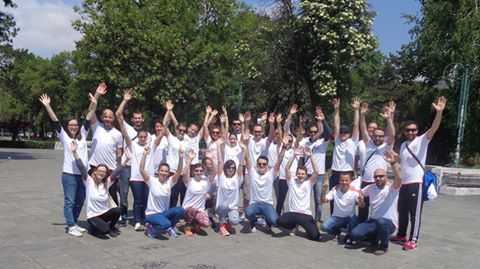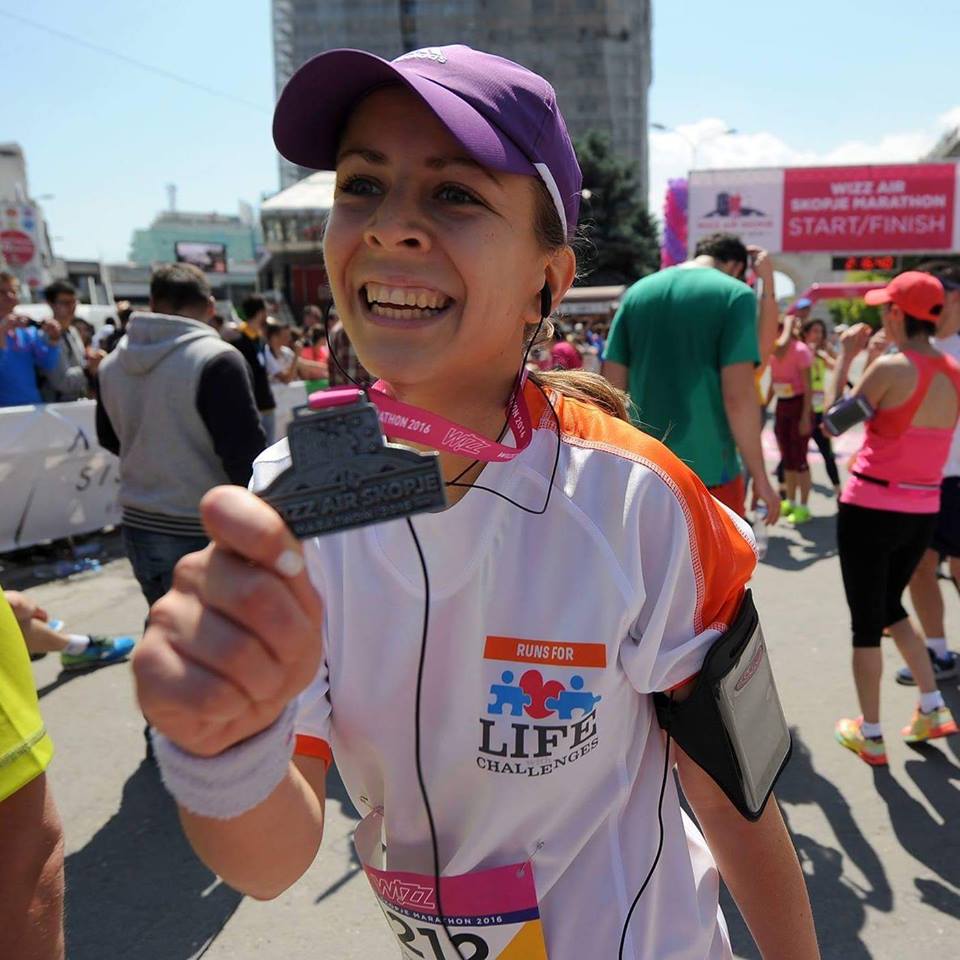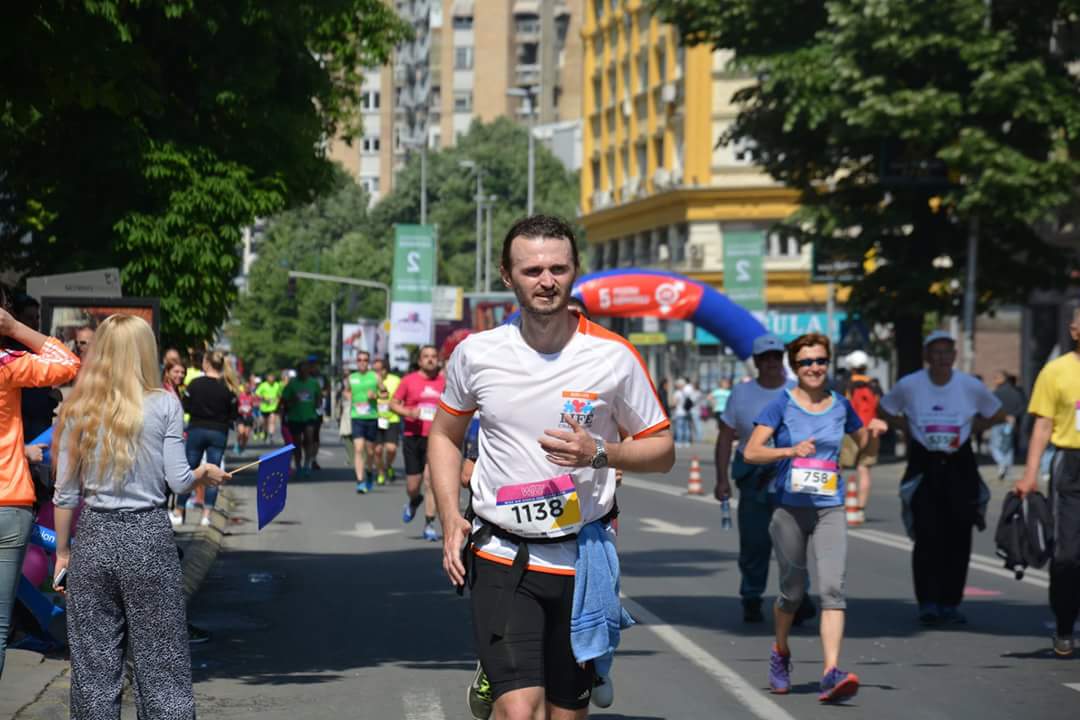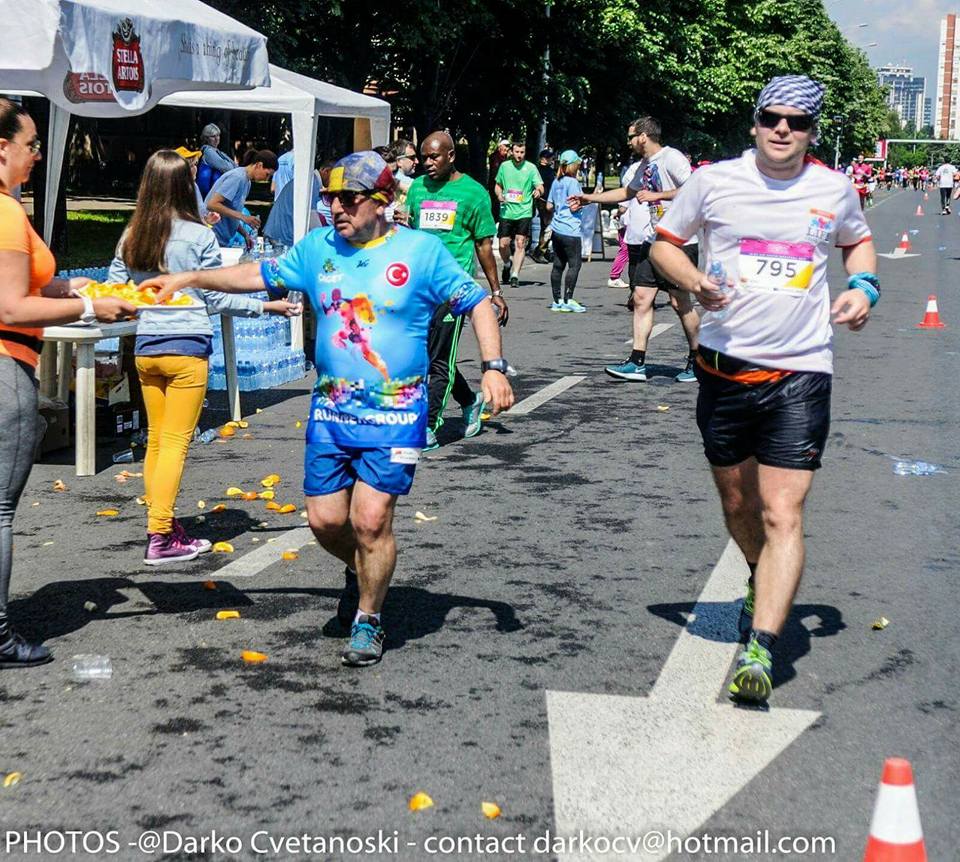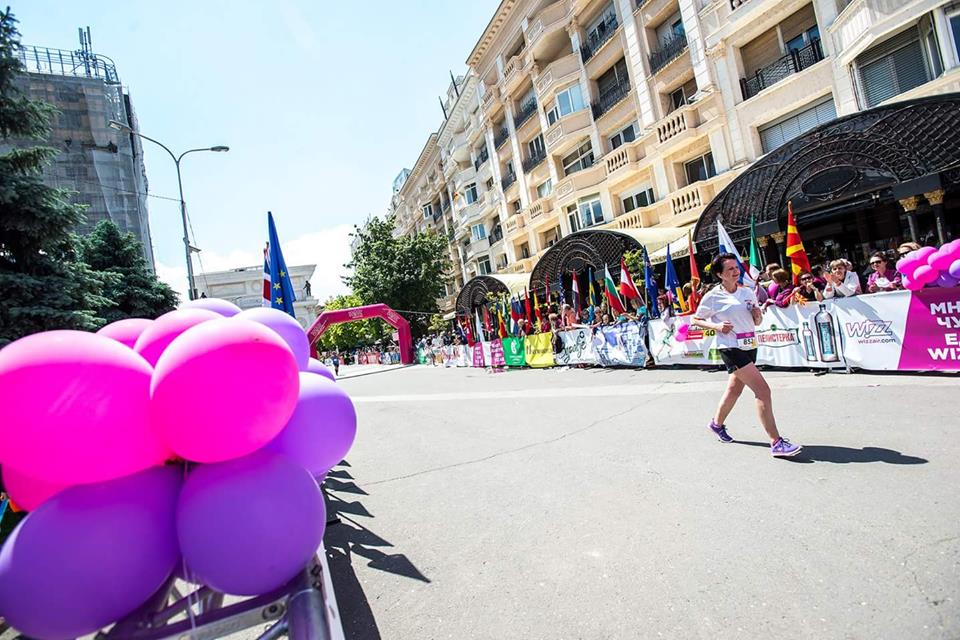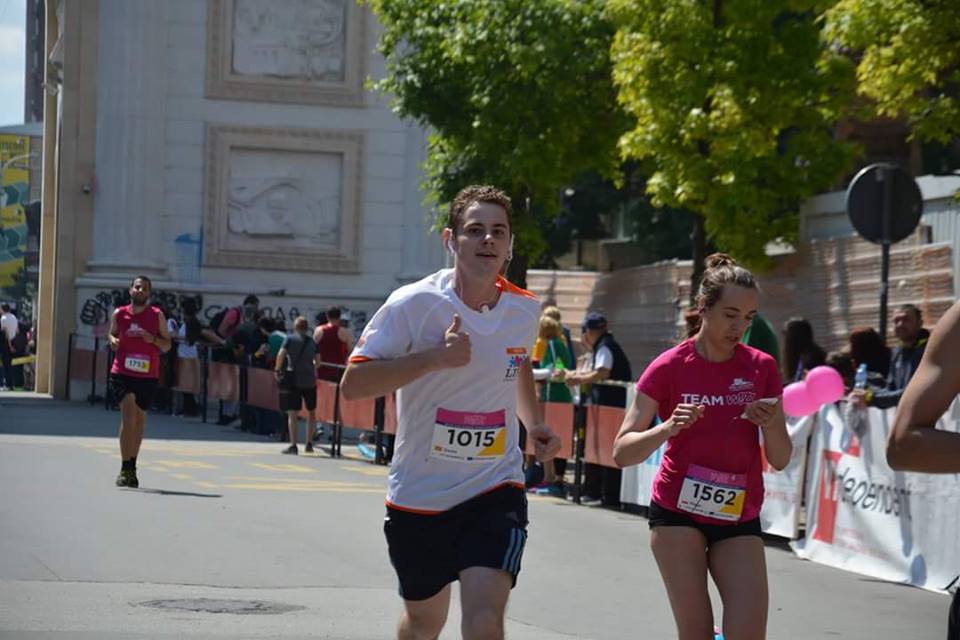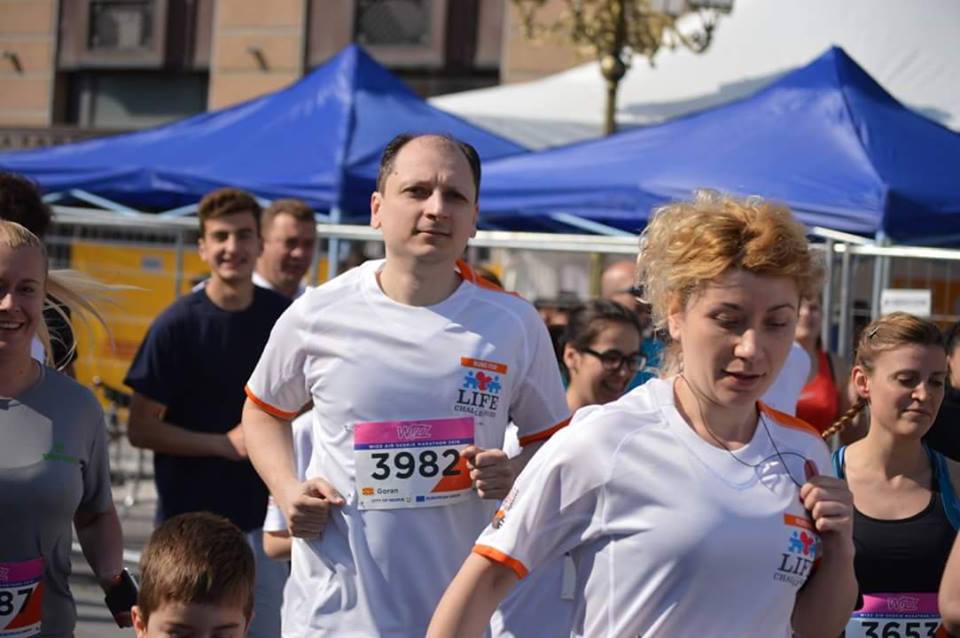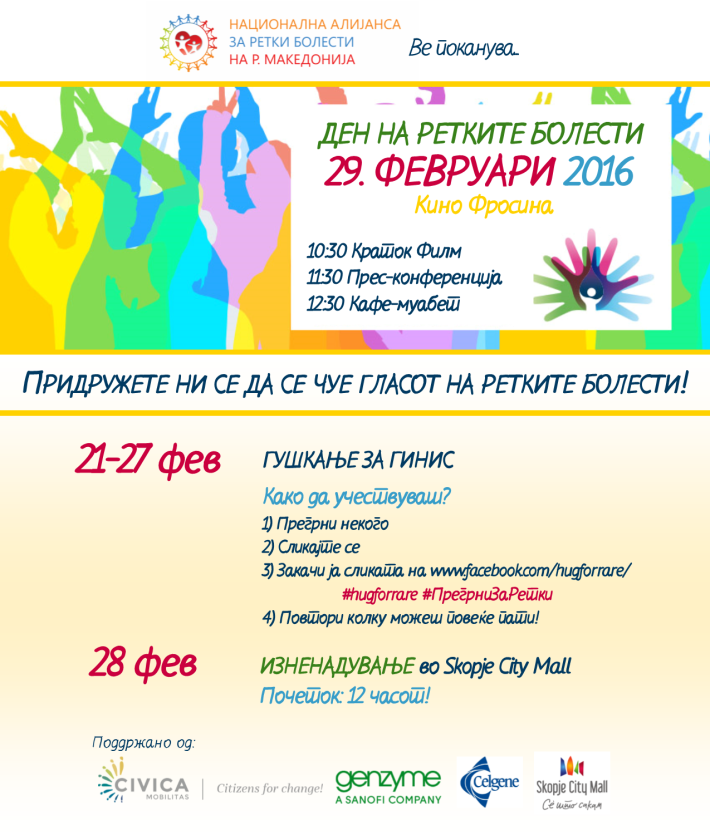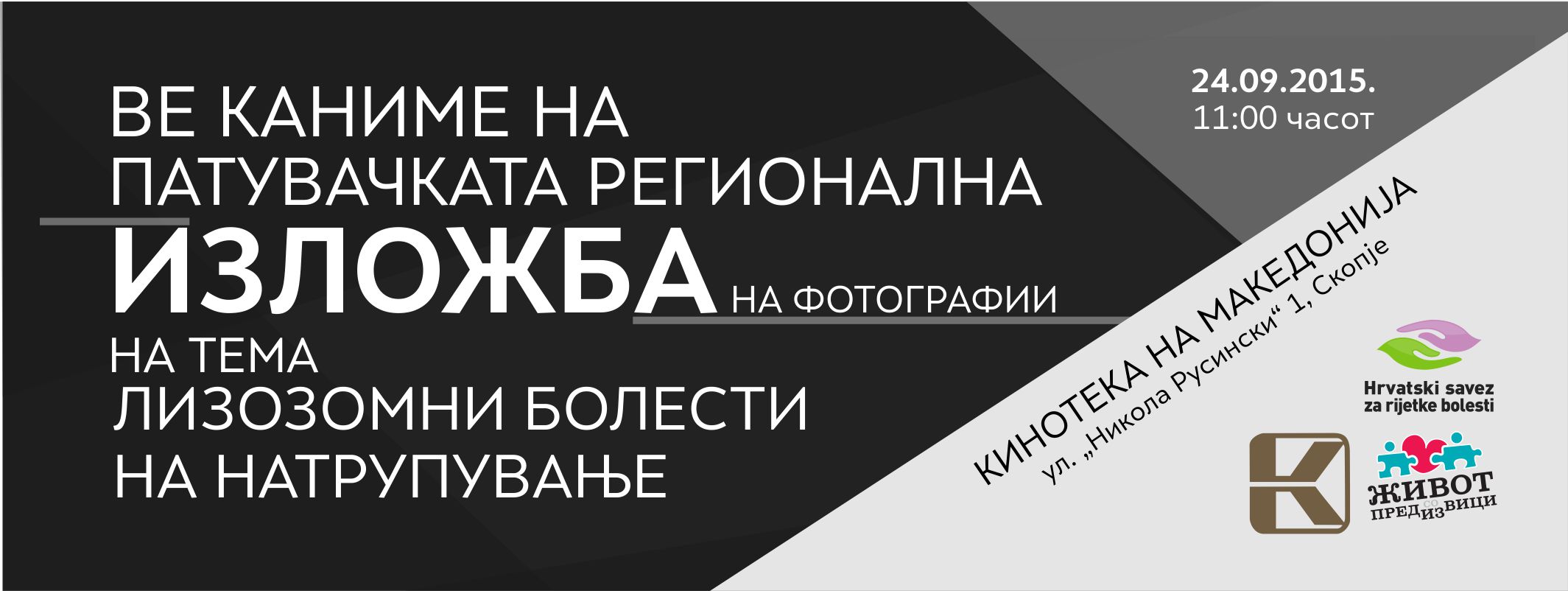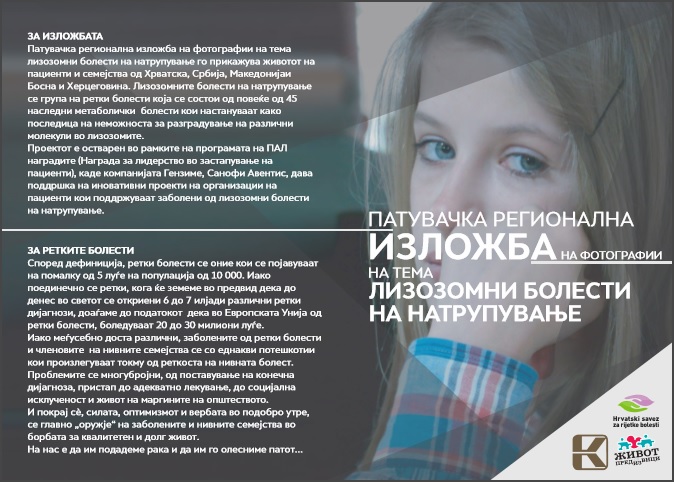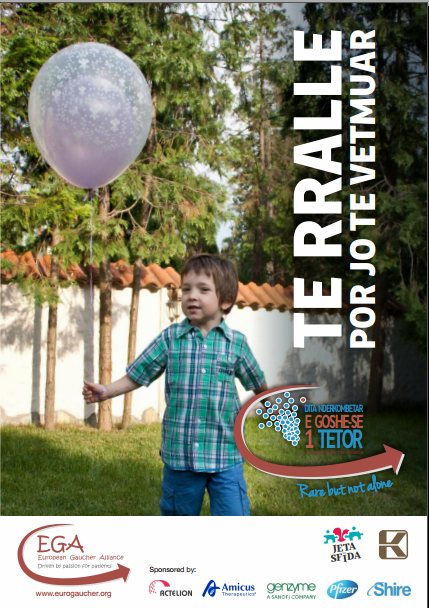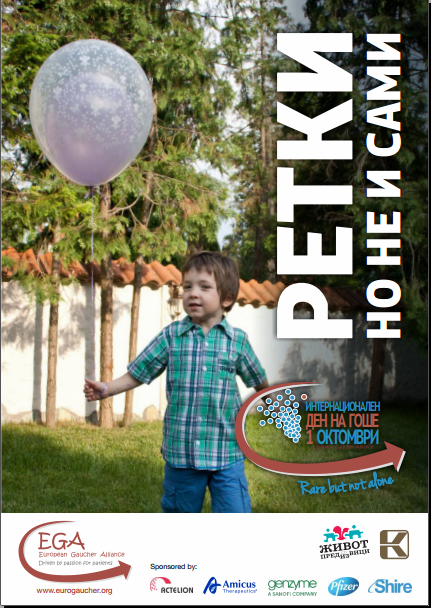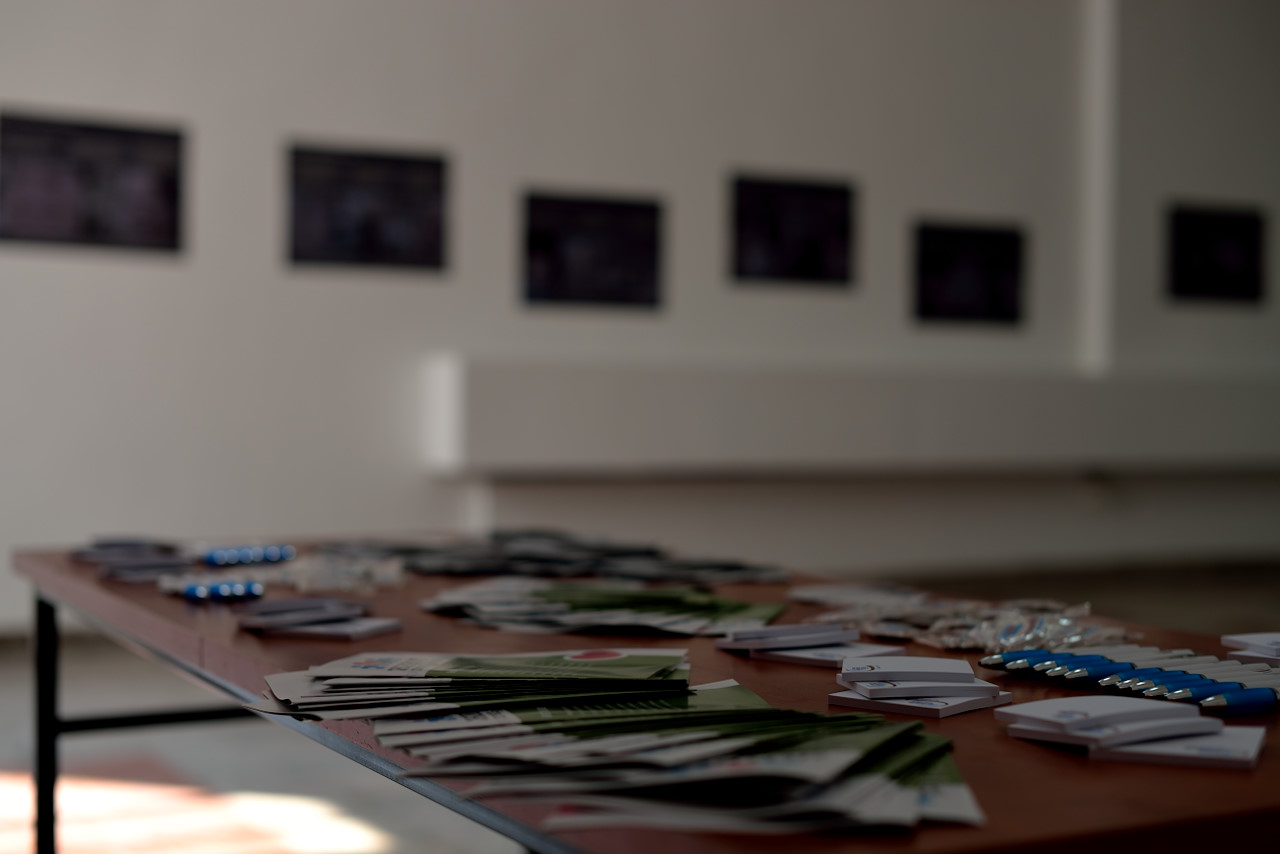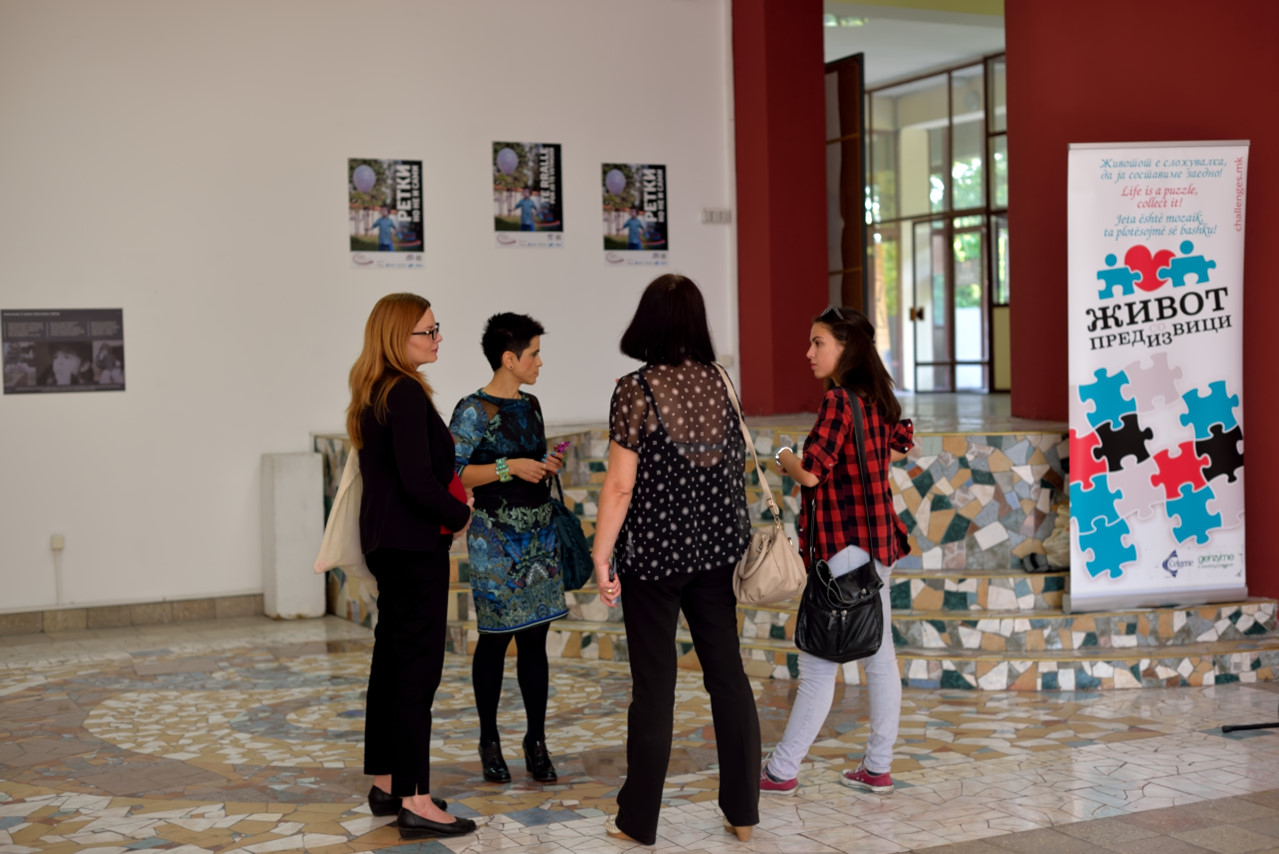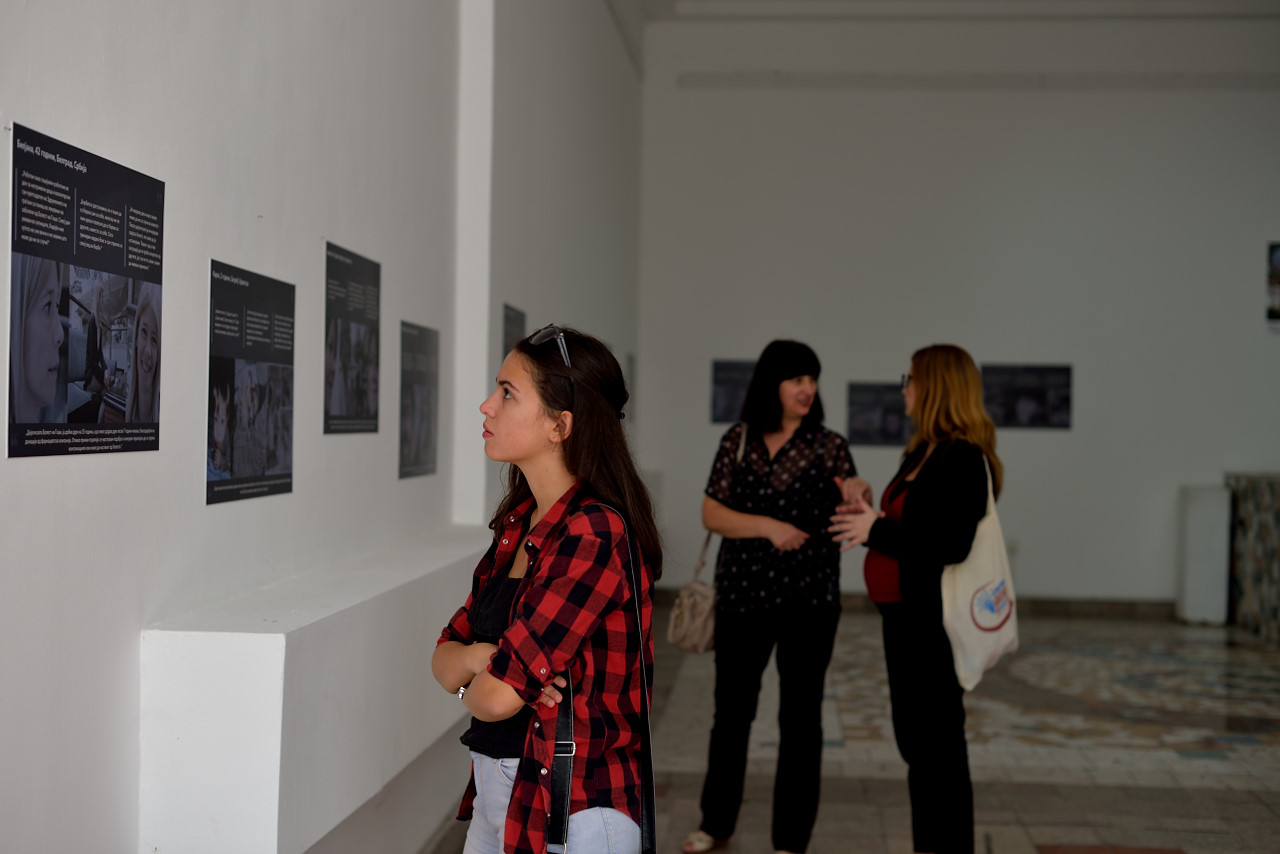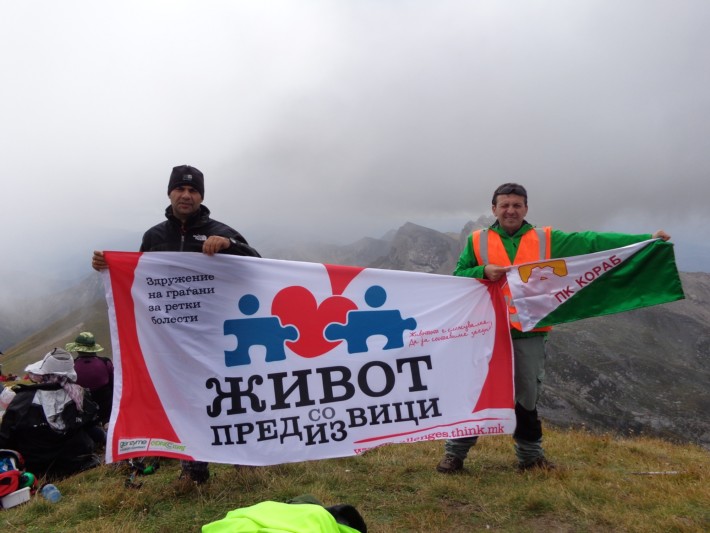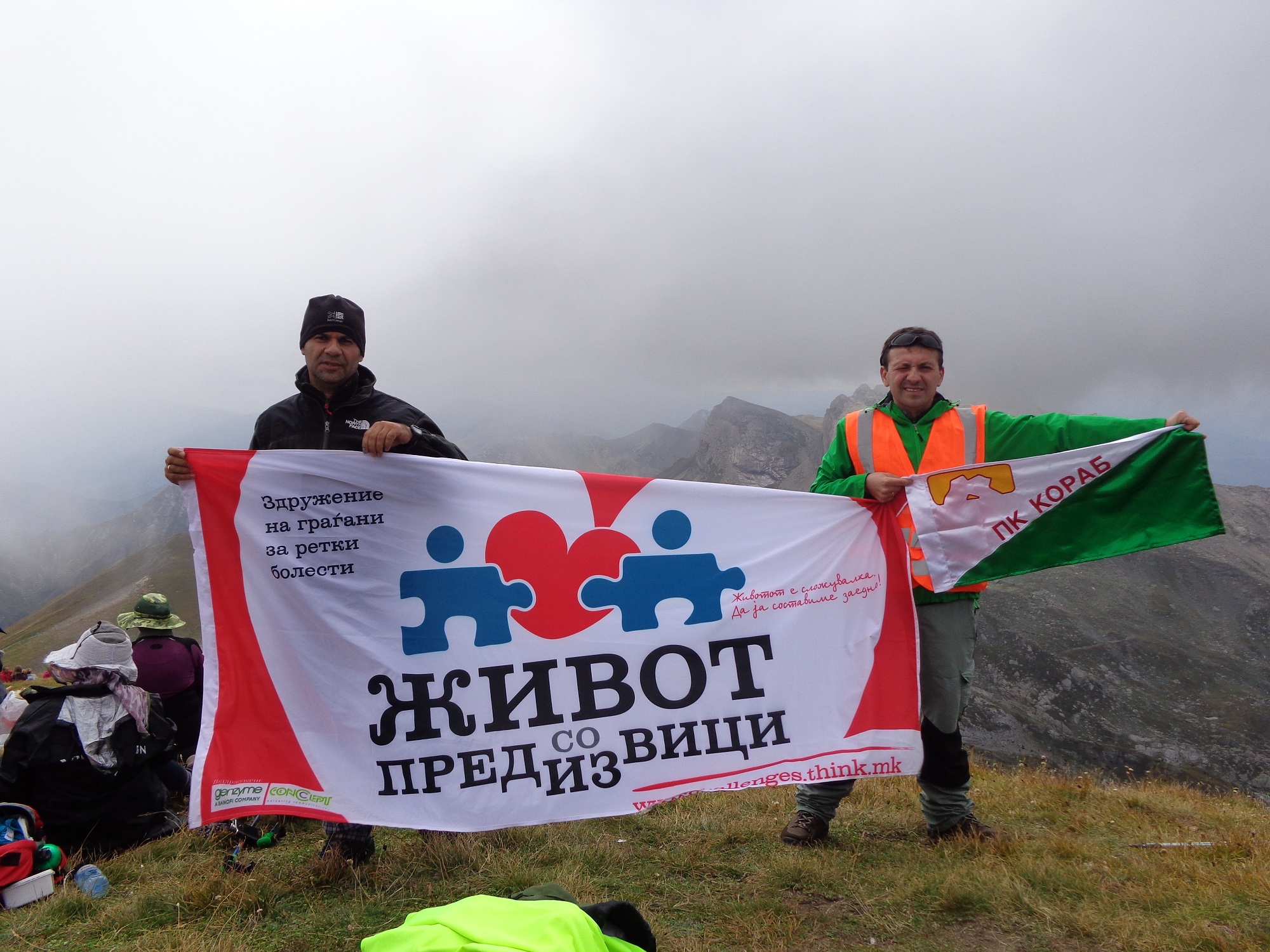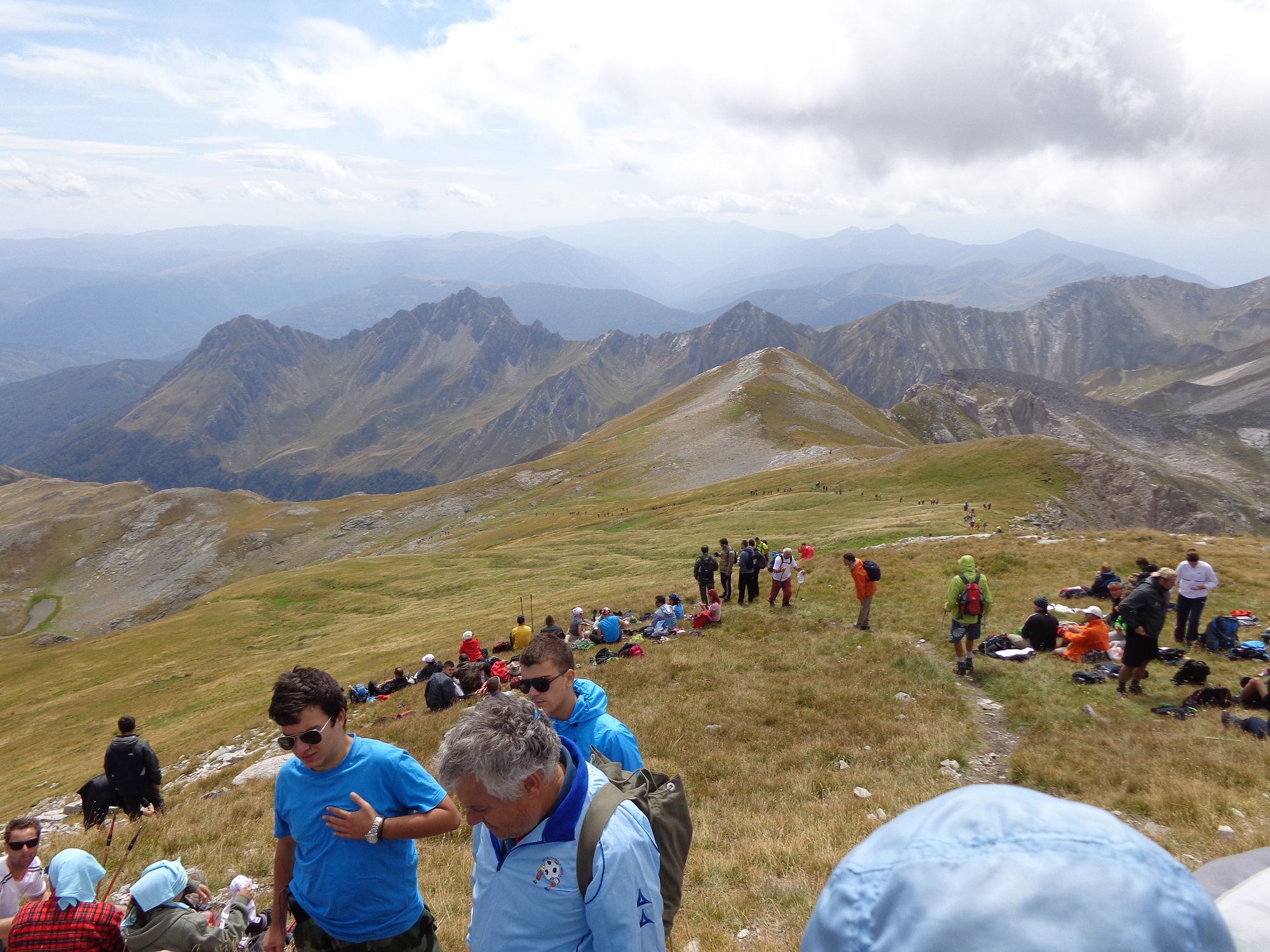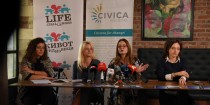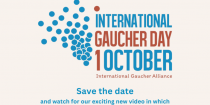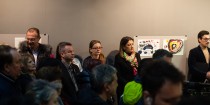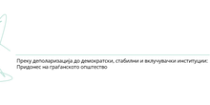On the occasion of the World Rare Disease Day 2016, the National Alliance of Rare Diseases of Macedonia organized an event to mark the occasion on 29 February (Modnay) in the cinema Frosina- MKC. In the course of the Friday, Saturday and Sunday prior to the 29th , events were as well organized in Ohrid, Prilep, Gevgelija and Bitola by handing out leaflets and activities such as hugging to break the Guinness record in hugging.
Ohrid: The Organisation of the Red Cross in Ohrid together with the Association for cycling, mounteneering and Eco-culture Z’s Avantura, on the 27th under the title HUGGING OF GALICHICA organized a hiking tour on the mountain Galichica. The pupils from the State Secondary School “Sv Kliment Ohridski” marked the rare disease day by running an athletic cross race which took place on the 29.02.2016 at the Ohrid Lake Quay.
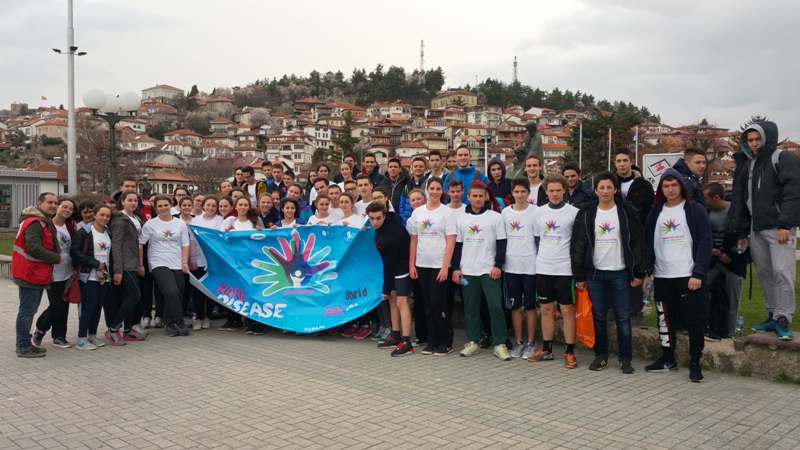
Bitola: The association Hepar Centre organized handing out leaflets and hugging on 27.02.2016 (Saturday).
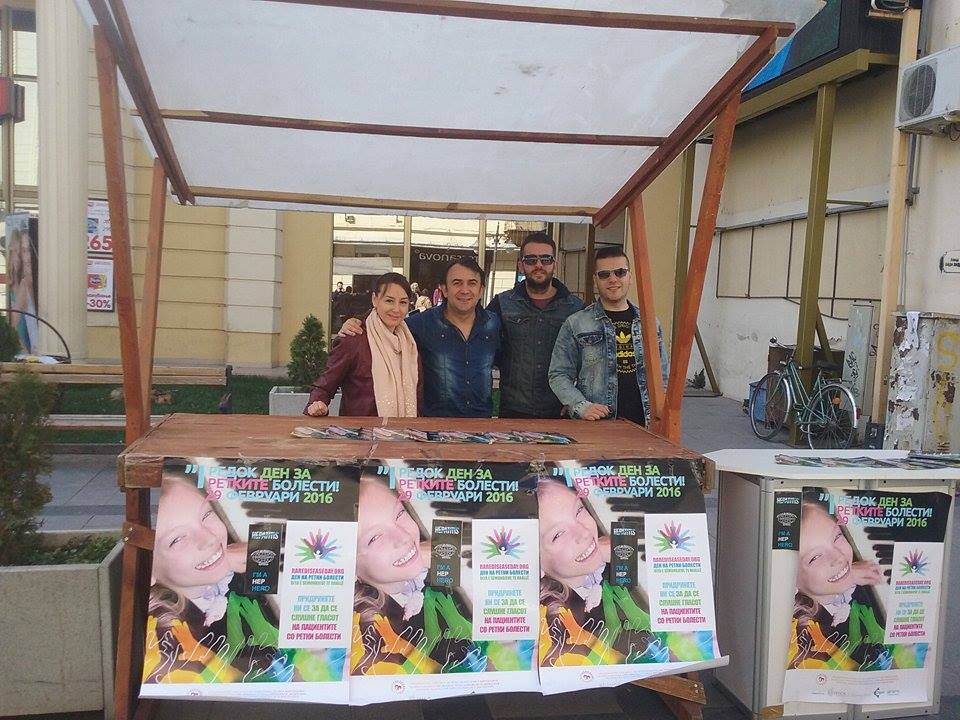
Gevgelija: The association Moment Plus organized hugging and handing out leaflets on 26.02.2016.
Prilep: Volunteers with the support of the Municipality of Prilep organized a fashion show in the cinema Miss Ston on the 27.02. 2016
Statements
The Managing Director of the Agency of Medicines and Medical Devices Ms. Marija Darkovska Serafimovska discussed the importance of ORPHA medicines. Although the rare diseases are few and generally the medicines necessary for them are not interesting for the pharmacological industry because the research they require is expensive and the market is small, lately there has been some positive advance as a result of sponsored research by the governments, shorter administrative procedure and the patent for these medicines lasts longer. In regard to these medicines in Macedonia in 2015 a continuous supply was provided and this was thanks to the amendments in the Law on Excise Tax and the work of the Rare Disease Commission. The Agency for Medicines and Medical Devices will continue to give its support in the same and similar way.
The Chairperson of the Commission for Rare Diseases PhD Aspazija Sofijanova, MD pointed out that living with a rare disease is a challenge; she also stated that it is an even greater challenge to maintain the disease under control. She emphasized that the rare disease registry is regularly updated and that we should all work together on greater integration of the people with rare disease in our society. She said she was grateful to everyone who is part of this struggle, as well as the media for the positive coverage of this issue. Ms. Sofijanova underlined that it is not only therapy that matters but also the family and the integration in society.
The MANU Representative, PhD Dijana Plasheska Karanfilska briefly stated how important is diagnostic and that although it is expensive it exists. Modern diagnostic tools are available to patients in Macedonia and with these tools prenatal and genetic diagnosis can be carried out, which help to determine the possibilities of a rare disease occurring in the family.
The President of the National Alliance of Rare Diseases, Vesna Aleksovska stated “At the beginning, in 2009, I was a lone fighter patient, but today we have a big family where we all fight the battle of Rare Diseases.” She summed up how important treatment was and pointed out the research that Life with Challenges carried out in cooperation with “Studiorum”.
Presentation of the research on rare diseases by Stefan Chichivaliev (Studiorum)
Stefan Chichivaliev discussed the road which a rare disease patient must take. This road begins with a diagnosis which can be very prompt or it can take longer. The second part of that road is actually the most important part which unifies the primary, secondary and tertiary health care and which helps the patient to maintain a stable stat with an appropriate treatment, which is actually the last part of the road. Without appropriate support the families fighting a rare disease face huge problems, foremost from an economical aspect as well as a social aspect.
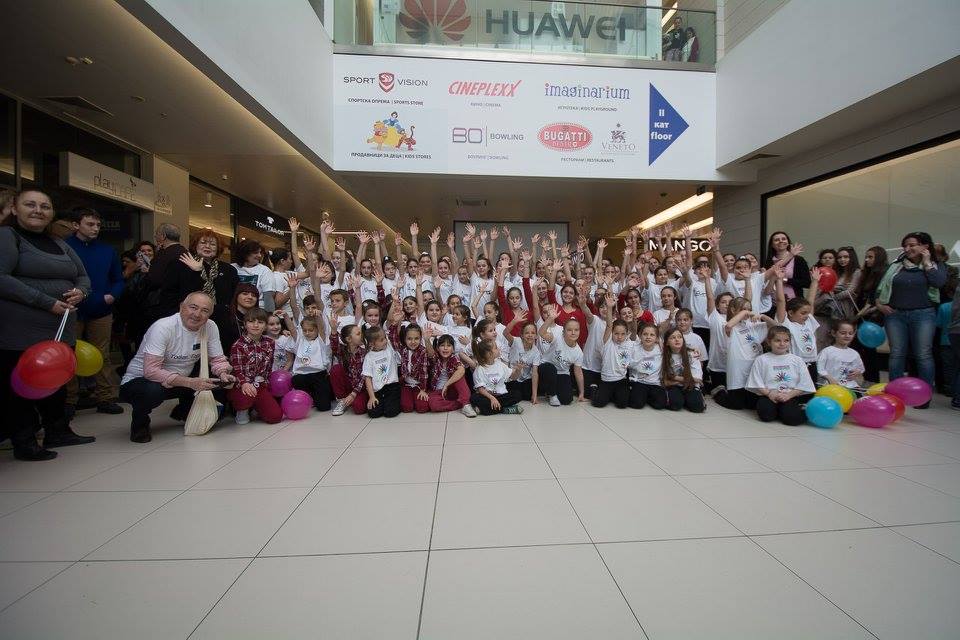
Additional information regarding the rare diseases in Macedonia:
Availability of medicines for rare diseases
According to the first two tenders through the rare disease programme of the Ministry of Health can be seen that certain medicines are provided for the Gaucher disease, Hereditary Angiodem, Wilson’s Disease, Tuberous Sclerosis, Juvnenile Arthritis, Factor 13 Insuficiency, Huntington disease, Phenylketonuria, MPS 4 – Morkio Syndrome, MPS-2 Hunter Syndrome, Pulmonal Hypertension, Thyrosinemia , ALS- Lou Gehrig’s Syndrome, Cystic Fibrosis, etc. We hope that by registering patients in the registry within the Ministry of Health through the Commission for Rare Diseases other patients who face other diseases will also receive the necessary therapy. Certain medicines, orthopedic aid and special nutrition for rare diseases is also provided through the Health Insurance Fund of Republic of Macedonia (FZOM). Of course therapy in the form of medicine is not the only thing which is necessary, for many diseases it is necessary to provide a suitable orthopedic device, special nutrition, physical therapy, personal assistant, social inclusion or other social services that need to be provided through cooperation among institutions – The Ministry of Health, the Ministry of Labour and Social Policy , the Ministry of Education, MANU.
From the patients who have approached us as an Association asking for help and whom we have registered, it is necessary to provide additional medicines for the following diseases:
Myelodysplastc Syndrome, multiple myeloma, malign myeloma, additional medicines for pulmonary hypertension, medicines for Von Willebrand, supplement for Rett and Williams syndromes, bandages and plasters for epidermiosis bulosa, supplements for CPT deficiency, supplements for Lowe syndrome, for cystinuria, then additional medicine for juvenile arthritis, additional medicines for Wilson’s disease, Chrone disease and ulcerous colitis (promised by FZOM), orthopedic aid for muscular dystrophy, cerebral palsy, additional physical therapy for arthogryposis multiple congenital, polymiositis, Strumpfel, fridrig ataxia, Rett syndrome, Lou Gehrig’s syndrome,etc. The demands increase on daily basis because more and more patients and families are informed about the associations and the Ministry’s programme. We must all work together in order to achieve better quality of life for the families facing such complex diseases. Everyone deserves a chance for the best possible life without marginalization and discrimination.
We still receive demands from patients who have not received treatment yet; and we are in touch with doctors asking them what needs to be done in this field so that everyone gets the necessary therapy. Unfortunately, there is not treatment for all the diseases, there are many rare diseases, around 6000 registered worldwide and for only 250 of them there is some sort of treatment. It is necessary to develop additional social services to help the families facing a rare disease for which there is no treatment available; for some on the other hand there is the need for orthopedic devices, bandages and plasters, special nutrition, additional physical therapy. FZOM works on meeting our needs and we know that as a state and as people we can do so much more. Also attention should be paid to the rare forms of cancer which at present are not included in the rare disease programme nor in FZOM. Cancer is something against which we all must fight and therefore Life with Challenges has joined the Alliance of Patient Organizations whose aim is providing better quality of life of patients with malign diseases and cancer. We hope that we can achieve some common solutions together with the institutions in order to improve this field in the health care and in the prevention as well as in treatment with available medicines and palliative care.
The New Programme of the Ministry of Health for 2016
1. Diseases which can be treated with medicines;
2. Diseases which are rare, but for which there is no treatment but which are important for the diagnostic and planning.
In the registry of patients with rare diseases are included solely the diseases listed in the ORPHAN list of rare disease – reviewed in July 2014
http://www.orpha.net/orphacom/cahiers/docs/GB/List_of_rare_diseases_in_alphabetical_order.pdf
In the Registry of rare disease patients are only included diseases which affect one in 2000 persons, but which do not exceed 20 affected at the level of Republic of Macedonia
Medicines are provided or the patients who are registered in the Registry of rare diseases through this programme. The provided medicines are necessary for the patients and represent an only choice of treatment of the rare disease, and they are not on the positive list of medicines
For the realization of this programme, treatment of rare diseases with therapy and medicines which have not been previously applied in rare disease treatment, for the provision of the necessary equipment for diagnosis of rare diseases, providing education for the staff who diagnoses and treats the rare disease patients, it is expected that in 2016 total funds in the amount of 203.000.000,00 denars will be needed.
- Treatment of patients with a rare disease regardless of insurance status 197.000.000.00
- Providing the necessary equipment for diagnosis and treatment of rare diseases 4.000.000.00
- Providing education of the staff who diagnoses/treats the rare disease patients 2.000.000.00
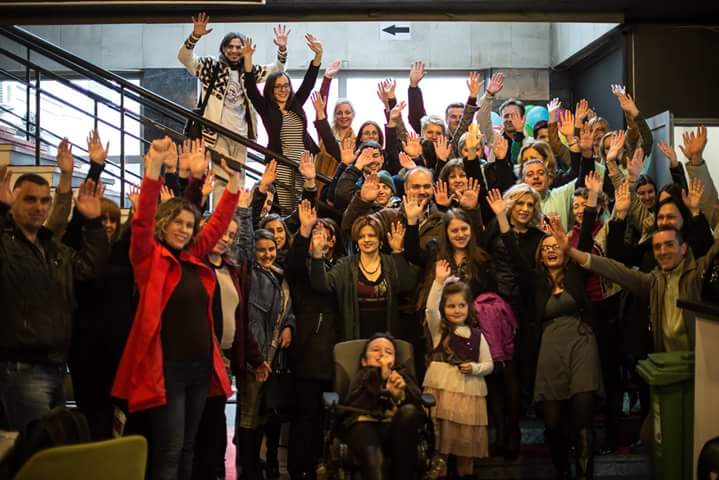
За дополнителни информации слободно контактирајте нè.
For additionl information please contact us:
Contact: retkibolesti@gmail.com
The overall event is supported by:
CIVICA Mobilitas, Genzyme-Sanoffi Aventis, Celgene International and Skopje City Mall
Information on the Association
The National Alliance of Rare Diseases in Macedonia has existed for over two years and it actively works on improving the quality of life of patients and their families facing a rare disease. The Alliance together with its 13 member organizations presently covers more than 50 different rare diseases in Macedonia and we hope that other rare disease advocacy organizations will join us. Together we advocate for treatment, care and services which we need and we create solutions for the daily challenges that accompany rare diseases, for example the National Plan for rare diseases with which the treatment of rare diseases will be institutionalized and a long-term solution will be provided for the patient and their families’ problems. Our activities have the aim to raise public and institutional awareness, education, counseling, and support to families, education of doctors, nurses, activation and education of volunteers and cooperation with international organizations.
www.facebook.com/NARBMakedonija
retkibolesti@gmail.com


